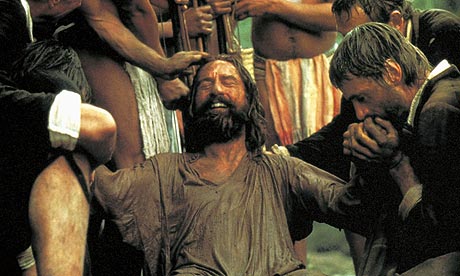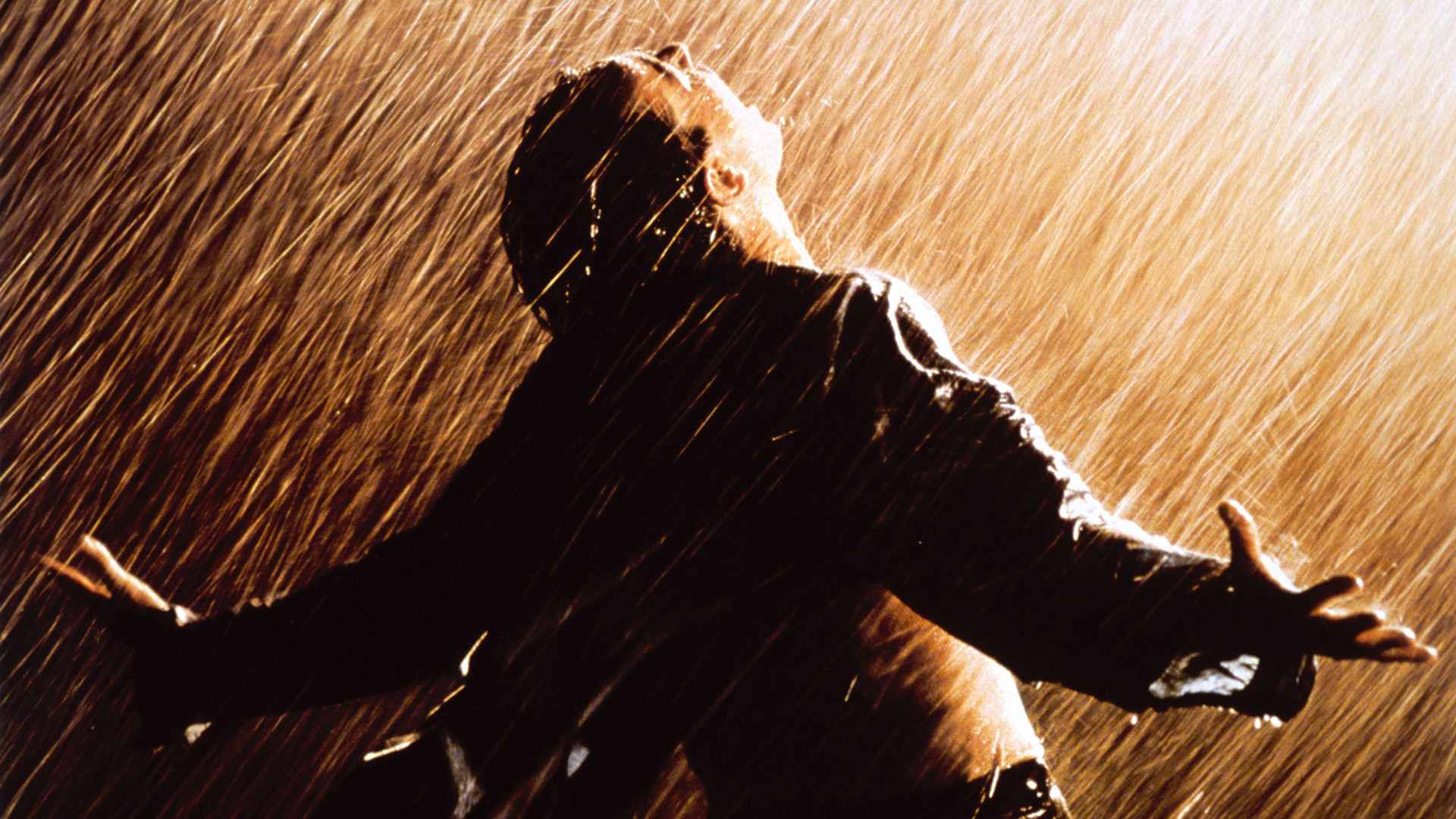There
is something that can only be described as thick about the laughter of God. And in this ghost-world where so much is thin with superficiality, it is quite rare to experience
anything approaching what one might call true joy. In the movie The
Mission, however, we do get a glimpse. The
main character, Rodrigo, played by Robert De Niro, is a conquistador in the New
World in the mid 1700s. He is a slave trader and becomes quite wealthy at the
expense of the natives.
One
day he discovers that his younger brother is having an affair with his beloved
mistress. Out of jealousy he ultimately winds up killing him. Inconsolable and unwilling to eat, he
is ministered to in prison by a missionary priest named father Gabriel. At first, he will not accept the possibility of forgiveness. In fact, he even says to the priest that redemption is impossible for him because no penance would be severe enough. The priest responds, "You chose your crime- do you dare to choose your penance." Rodrigo responds; "Do you dare to see it fail?" After much coaxing on the part of father Gabriel, Rodrigo finally accepts the challenge and devises a profoundly onerous, not to mention harrowing, penance for himself. Accompanied by the priest, he must now attempt to carry his former weapons of war up the side of a steep mountain where, at the conclusion of his
journey, he must await the final verdict of those whom he had formerly enslaved, those who live "above the falls."
During this arduous journey, he falls numerous times, and there are questions about whether he will complete his penance. Nevertheless, with the aid of father Gabriel, and a few other missionary priests, he is eventually able to scale the mountain. Yet upon arriving at the place where the natives are encamped, he is uncertain about whether or not they will kill him. The chief of the tribe approaches the mud-covered conquistador. He barks out an order in a language that is indiscernible, and one of his comrades draws a knife and places at the base of Rodrigo’s throat. After a moment of uncomfortable silence, he makes a swift cutting motion, though not into the conquistador’s neck. Instead, quite unexpectedly, he cuts into the thick cord that bears the burden of his penance. Everyone is stunned, and for a brief moment there is some confusion. Just then the audio in the film cuts out and all that can be seen is the vision of the former slave trader weeping as the native tribe bellows with jubilant laughter of disbelief. Who could have ever envisioned a slave trader falling prostrate before those he enslaved with tears of compunction running down his face? The scene ends with the De Niro character oscillating between tears of sorrow and tears of joy. And because there is no audio in the scene, the audience is unable to discern where one emotion ends and the other begins.
This is the true face of Easter; a scene that in a most profound way captures what St. Paul called, "the eternal weight of glory". True joy is not simply the phenomenon of feeling happy, or a sense of peace about things, it possesses a certain "weight" to it, something so priceless and beautiful that when one begins to understand its value it is difficult not to feel stunned by the good fortune that has befallen you. It is like winning the lottery without knowing that you entered it. It is a profound sorrow that by some miracle of the resurrection is transfigured into an equal sense of jubilation. By contrast, sin completely robs us of our spiritual integrity, consigning everyone to an eternal state of superficiality and disintegration. Indeed, the only way to regain this lost sense of spiritual "thickness" is through the Resurrection of Jesus Christ. Yet as the scene in the movie demonstrates, the grace and forgiveness of Jesus Christ does not merely consist in God letting us off the hook. For our part, we must place ourselves in a position where we are able, so to speak, to be "let off the hook." This does not simply mean that we say to God "OK you can forgive me now", for that is what is known as "cheap grace." Forgiving one's self involves the paradoxical notion that you are made "worthy to be unworthy." God has infused in us a deep sense of justice, and in a certain way, it is we who demand restitution for our sins, not only God. Hence, reconciliation is as much about us being made right with ourselves as it is about being made right with God. This also doesn't mean that God is not more powerful than our hearts, but it does mean that in order for us to receive the benefits of forgiveness, there has to be someone there to receive them. Without genuine contrition (which is easier said than done), we are little more than wraiths unable to receive the solid food of His forgiveness.
Rodrigo's ascent up the mountain of God is in many ways the perfect metaphor for the spiritual life. Yes, it is by God's grace that we are forgiven and receive redemption, but it is equally true that our soul demands an act of gratitude for so generous a gift. That is not to say that God would not be justified (like the Guarani) if he were to kill us in spite of our sacrifice, but rather to say that love compels us to offer some kind of return regardless of whether or not the debt can be repaid. That is the point in the end. Our debt cannot be repaid even were we to give everything to God. However, it is precisely in this attempt to give him everything that we open ourselves to understanding just how much he's given us. Like a true champion who weeps after winning the finals, he understands the price that came with the victory, he knows just how close he came to losing everything, but even more importantly, he knows that even with all of his efforts, he would be nothing without the ones who made the victory possible.


